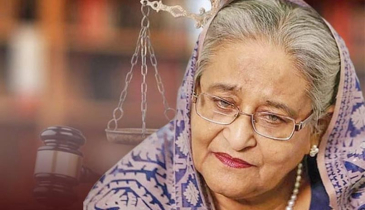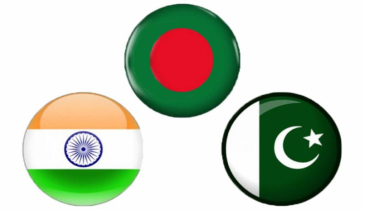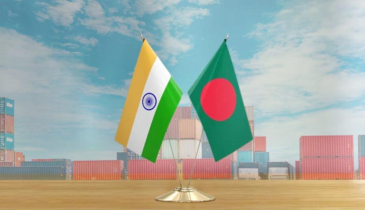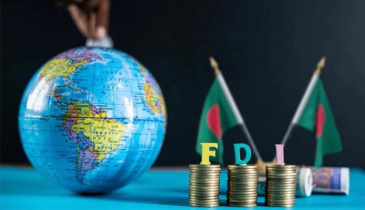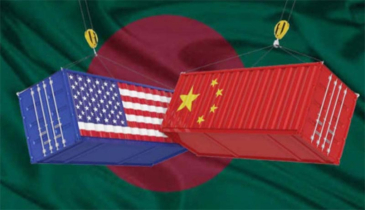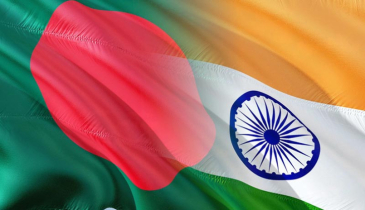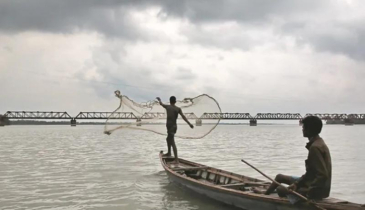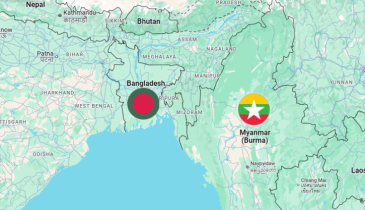50th Anniversary of Bangladesh's UN Membership: A Journey of Global Diplomacy and Progress
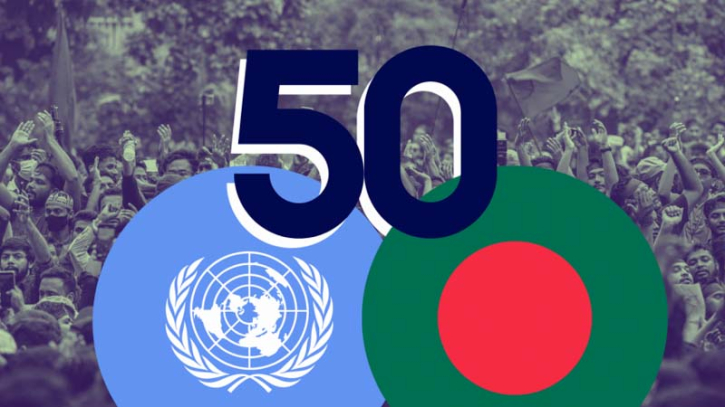
The 50th anniversary of Bangladesh’s United Nations (UN) membership is a significant milestone that highlights the country’s progress and contributions on the global stage since its independence in 1971. Bangladesh became a member of the UN on September 17, 1974, and its half-century of involvement with the organization holds both symbolic and practical importance. As the 136th member of the UN, Bangladesh’s journey into the global arena began amidst challenges, with its post-liberation identity still fragile. However, five decades later, it stands as a model of resilience, playing a vital role in multilateral diplomacy, global peacekeeping, and sustainable development.
Golden Jubilee of Bangladesh’s UN membership
Bangladesh’s journey began in 1971 when it achieved independence from Pakistan after a fierce struggle. The newly formed nation faced immense challenges, including rebuilding a war-torn country, addressing widespread poverty, and establishing its identity on the world stage. Joining the United Nations was a crucial step in this process. After several rounds of diplomatic efforts and international support, Bangladesh was officially admitted to the UN on September 17, 1974, marking its formal entry into global diplomacy. The then foreign minister Kamal Hossain raised Bangladesh’s flag, among the panoply of flags representing other UN member states, at the UN plaza in New York.
For Bangladesh, UN membership signified more than just recognition—it was an affirmation of its sovereign status and an entry into a collective of nations committed to peace, security, and cooperation. Bangladesh currently enjoys a robust partnership with the United Nations centered around shared objectives like sustainable development and human rights. However, challenges remain, particularly in areas such as climate change adaptation, managing the Rohingya refugee crisis, and navigating complex geopolitical dynamics. This golden jubilee of partnership is not merely a ceremonial moment to look back on but a golden opportunity to look forward to envisioning a Bangladesh that is more sustainable and influential on the world stage.
A Journey of Global Diplomacy and Progress
Bangladesh and the United Nations have a strong and enduring relationship, characterized by extensive cooperation on various fronts. The UN has provided significant humanitarian aid to Bangladesh, especially during natural disasters and refugee crises. Also, the UN has been instrumental in supporting Bangladesh’s development efforts, focusing on areas such as poverty reduction, education, and healthcare. The UN’s involvement extends to climate change adaptation, where it supports Bangladesh’s strategies to mitigate disaster risks due to its vulnerability to climate-related events.
It is worth mentioning that the UN has significantly contributed to Bangladesh’s development and humanitarian needs. The United Nations has been actively involved in addressing the Rohingya crisis, focusing on humanitarian aid, human rights advocacy, and seeking sustainable solutions for the displaced Rohingya population. Bangladesh has hosted more than a million Rohingya refugees, and it continues to work with UN agencies, such as the UNHCR (United Nations High Commissioner for Refugees), to provide aid and advocate for a sustainable resolution. In 2024, the United Nations agencies, especially WFP, have played a crucial role in addressing the needs of the Rohingya refugees and local communities.
Moreover, the UN has worked with Bangladesh to promote human rights and ensure the protection of vulnerable groups. Bangladesh’s participation in various international and regional organizations reflects and affects its economic and diplomatic engagements on a global scale. The country’s focus on sustainable development, particularly through the United Nations Sustainable Development Cooperation Framework (UNSDCF), is crucial. This framework guides cooperative efforts toward achieving the Sustainable Development Goals (SDGs) by 2030, emphasizing inclusive economic growth, human well-being, environmental sustainability, and gender equality.
Bangladesh’s strategic location enhances its importance to the UN, especially in peacekeeping and regional stability. The country’s substantial contributions to UN peacekeeping missions underscore its commitment to global peace, affecting its standing and influence within the UN. Over the past three decades, Bangladesh has emerged as the topmost contributor to United Nations (UN) peacekeeping operations. Bound by the constitutional requirement to contribute to the protection of international peace and driven by the aspiration to create a positive image towards the international community, Bangladesh has taken a leading role in serving in UN peace operations. The dedicated service of Bangladeshi peacekeepers has earned them the epithet ‘the cream of UN peacekeepers.’
Also, Bangladesh has made notable contributions to fostering peace and cultural diplomacy. The UN General Assembly adopted Bangladesh’s Resolution on the ‘Culture of Peace,’ highlighting the country’s commitment to global peacekeeping and cultural diplomacy. This widely supported resolution illustrates Bangladesh’s influence and proactive stance in promoting international collaboration. By promoting its diverse culture, Bangladesh aims to enhance its global standing and foster partnerships based on shared values and interests.
Bangladesh leverages its rich cultural heritage to strengthen international relations and portray a positive national image. Through these efforts, Bangladesh addresses immediate regional issues while contributing to broader discussions on global peace, security, and cultural understanding. Bangladesh’s leadership in climate change discussions highlights its active role in global policy. The country’s approach to diplomacy at the UN demonstrates advocacy, cultural promotion, and active participation in global governance. Despite challenges, Bangladesh’s commitment to international cooperation persists.
Way forward
Now, Bangladesh proudly celebrates the 50th anniversary of its membership in the United Nations, a landmark event that has been pivotal in shaping the country’s diplomatic, economic, and humanitarian trajectory. To celebrate this golden jubilee, there was a reception in the United Nations, which had been hosted by Chief Adviser Professor Muhammad Yunus as he attends the UNGA as head of the Bangladesh government to attend the 79th UNGA. The reception was attended by representatives from various world leaders and the United Nations has conveyed its best wishes to Bangladesh. As it looks ahead to the next 50 years, Bangladesh’s role in shaping a more equitable, sustainable, and peaceful world remains as crucial as ever.
Notably, Chief Adviser Prof. Muhammad Yunus has called on international allies to support Bangladesh in its pursuit of a prosperous and promising future, emphasizing the nation’s commitment to seizing this critical moment for transformation. “Our task is to clean it up and reform it. We need to make a strong start, and your support is essential to making that happen,” Yunus said during a reception on the sidelines of the UN General Assembly (UNGA) in New York.
The last 50 years of Bangladesh’s membership with the United Nations have been characterized by its dedication to peacekeeping, sustainable development, humanitarian efforts, and multilateral diplomacy. As Bangladesh moves forward, its role within the UN is likely to grow, focusing on critical global challenges such as climate change, economic inequality, and international peacebuilding. The 50-year milestone is not only a time for reflection but also a moment to chart a future course. Bangladesh’s continued engagement in global governance, its push for climate justice, and its expanding role in international trade and development are set to further elevate its stature on the world stage. -Source: pressenza
.png)


